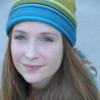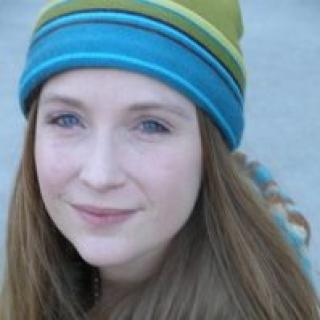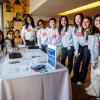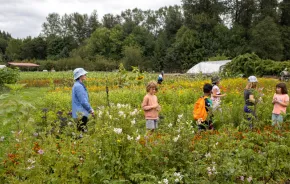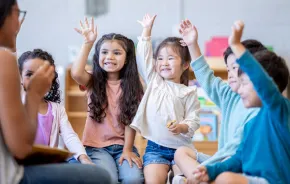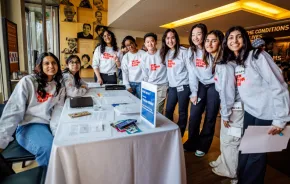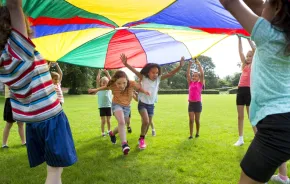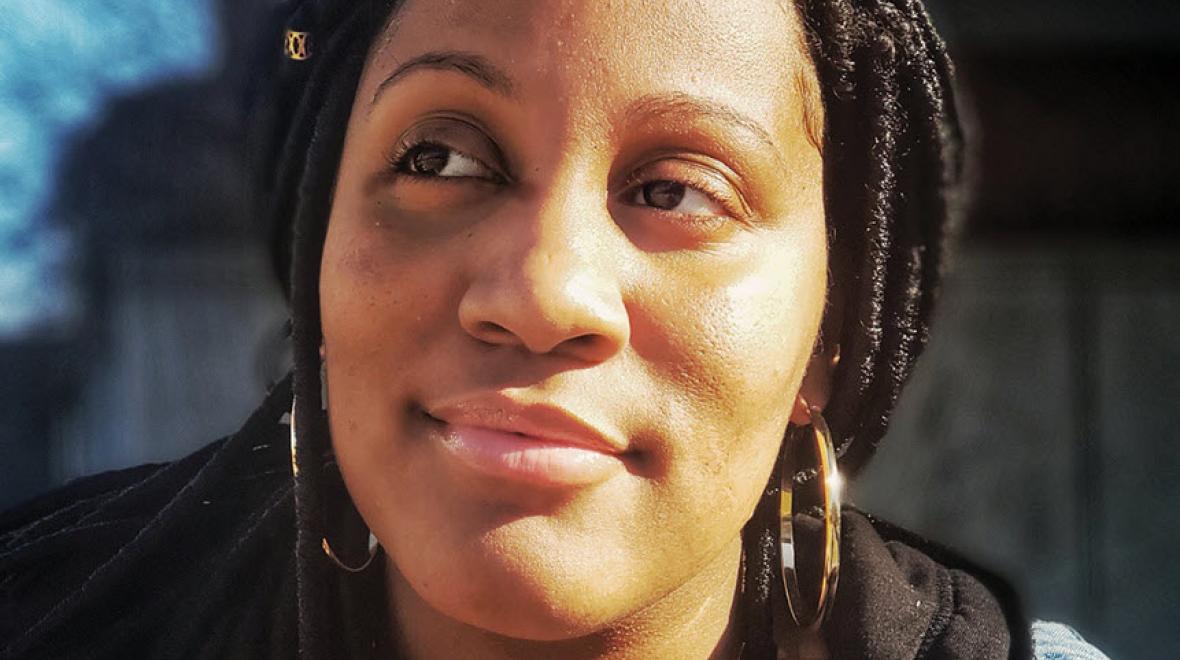
Editor's note: This article was sponsored by the Bill & Melinda Gates Foundation.
LaShaiah Dickerson is a senior at Edmonds-Woodway High School, where she has affected transformational change in her community through her involvement on the leadership council of the school’s Black Student Union.
But Dickerson’s BSU participation came about due to an unpleasant experience she had early on, after transferring from the diverse Kent-Meridian High School to the predominantly white Edmonds school. “I was walking through the hallway and this kid came up to me and said, ‘Hey, what’s up, my N word?’ I had this huge emotional breakdown — I couldn’t believe it,” she says. She noticed that the use of the N word was normalized at the school — and nobody was saying or doing anything about it. “So, I asked staff members I had met before I even started, ‘How can I get involved, because I’m tired of hearing it. It’s annoying and it’s disrespectful.’”
The previous leaders of the Black Student Union had graduated, and two currently enrolled students, Adiam Woldu and Segen Berhane, had been identified to lead the group. Dickerson made contact with them and they got to work, convening meetings for fellow students to reactivate and organize the membership, participating in teacher trainings on equity and diversity, and speaking at a staff-wide meeting and other events about their experiences in the school.
Some two years later, Dickerson provides an anecdote that illustrates how the climate has changed in the school: “There’s a student who came up to me recently and told me that because of the stuff that [the BSU has] done around the school, he is now more comfortable calling out his friends and he’s learned so much about black culture and history. So, definitely I’ve seen a shift in the way people act since then.”
“Stuff” may sound like an inconsequential word, but the work Dickerson and her fellow BSU members have undertaken to raise awareness is anything but. The group hosts and stages an interactive, performance-based black culture presentation at the end of each school year that allows them to “talk about everything that the teachers won’t talk about in class” through acting, singing and dancing. They are also in charge of organizing the annual assembly to celebrate Martin Luther King Jr. Day. “We always have multiple messages for people to take away from the assembly, and we also do events with other groups, such as our Rainbow Warriors, our GSA and our Latino Student Union. We always have a huge turnout, which is amazing,” she says.
In March, Dickerson represented the BSU at the Teen Action Fair, which was held at the Bill & Melinda Gates Foundation Discovery Center. “A big topic for us these last two years has been the decolonization of the classroom, and that’s what we were there promoting and talking about. We had handouts we made that talk about steps and tips to bring [the subject] up to your teacher as a student. And as a teacher, how can you implement it in your classroom. Then we also talked about some of the ways that we’re trying to decolonize the classroom,” says Dickerson.
One success story in this effort to decolonize the classroom at Edmonds-Woodway? The BSU led a successful petition process to get an ethnic studies course added for this year. “I’m taking it right now and it’s an amazing class,” enthuses Dickerson. She is quick to credit the dedication and collective action of her fellow BSU members and also expresses gratitude for the support of key staff, including American Sign Language teacher Amy Emond, who “has been the biggest advocate for any social-justice-focused group you can think of,” and the group’s adviser, Allison Keresi, “who is the exact same way.”
Closer to home, Dickerson aligns her motivation to work for social change with her family’s history of political activism — and to her grandfather, Robert Wray, specifically. He grew up in segregated Mississippi and moved here as a young man. “Basically, his big thing was that the treatment was the same but there just weren’t as many [overt signs of racism] here in Seattle. There weren’t the ‘colored’ signs, but the treatment was the same,” says Dickerson.
What words of wisdom does Dickerson have for youth who might be trying to figure out how they can make a difference, and for parents who wish to encourage their kids to become involved in the issues that matter to them? It’s a common theme: Learn to really listen. “If you want to be an ally, go to these clubs and listen. Then ask questions and just involve yourself as much as possible — when you’re there and you’re learning, you can take that knowledge with you. So, if one of your friends says something that’s racist or offensive to somebody, you can be that person to say, ‘Chill — that is not okay.’”
Mom and Dad, take the same cue: “Support your kid. Listen to them. When they say, ‘Mom, I’m experiencing this’ or ‘I was in class and this happened to me,’ don’t just say, ‘Oh, you’re fine,’ and brush it off. Listen to them. Hear their side and get involved. Call the school.”
After graduation, Dickerson plans to attend Western Washington University and study sociology. I ask her if she has a vision for how she’s going to blaze a trail there. She replies: “A big mistake that I made when I got into high school was that I waited until I felt comfortable enough before I got involved. But I feel like once you dive in, when you’re the most uncomfortable, that’s when you can start navigating your way through. And of course, I have to find their BSU. I have to. It’s kind of ingrained in me.”
|
Sponsored by: |
 |



